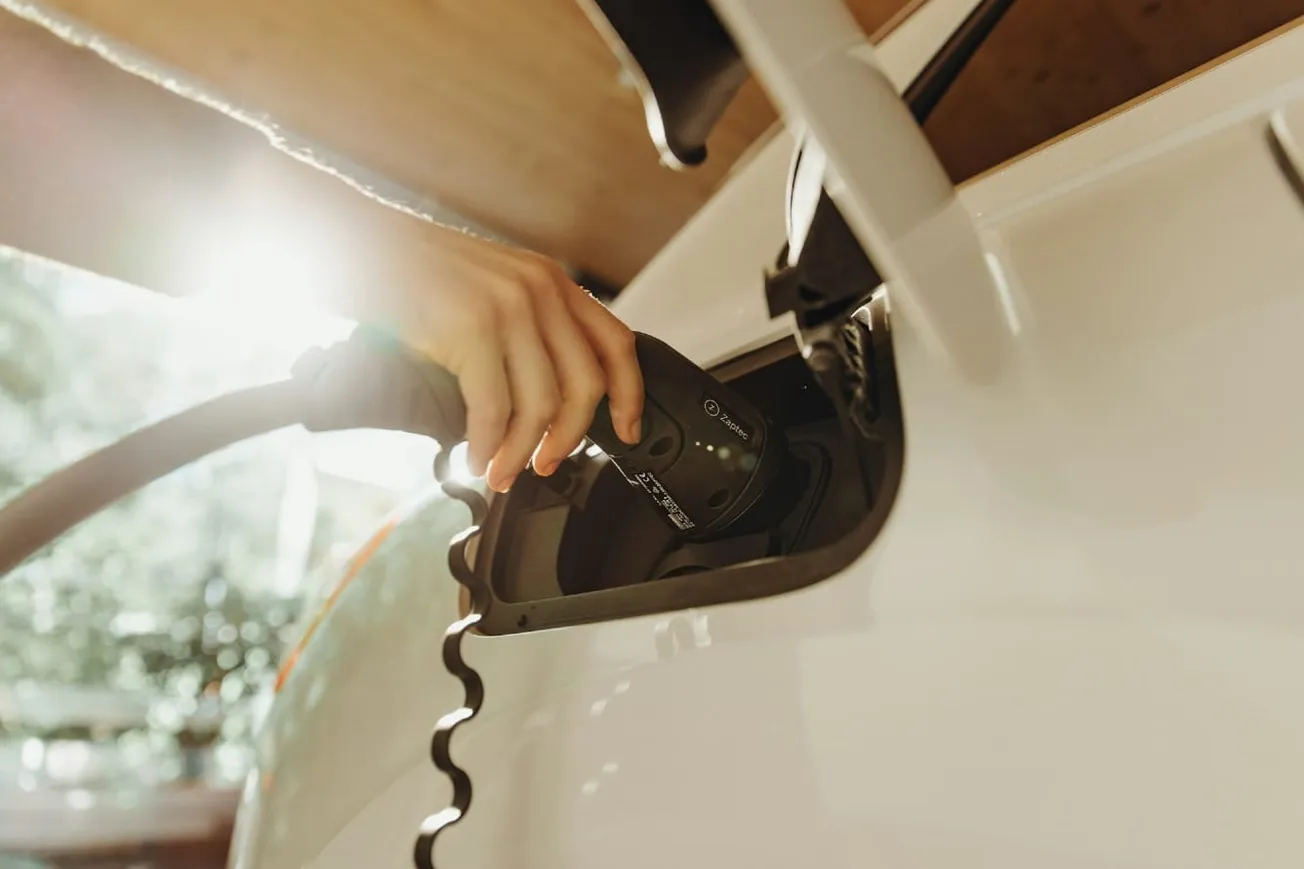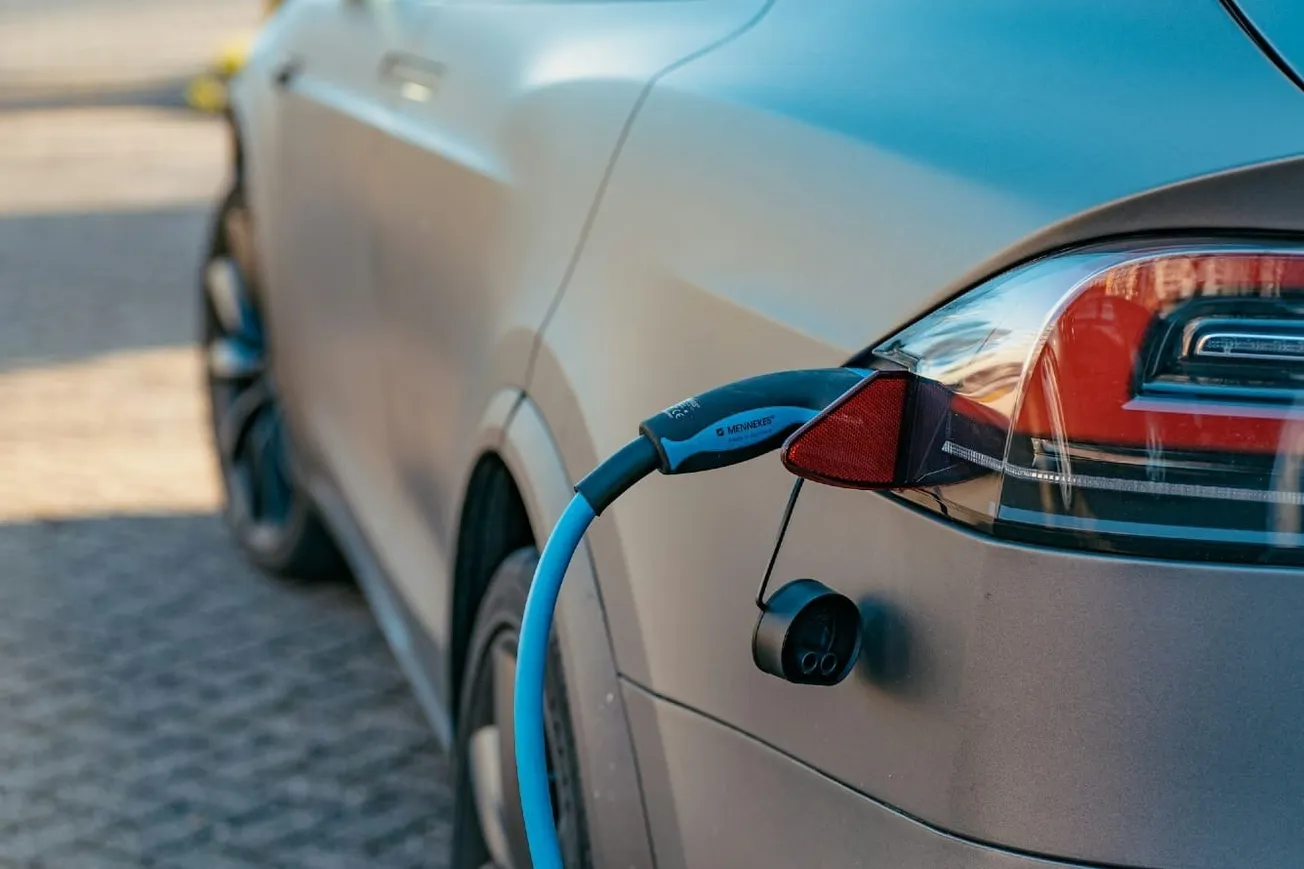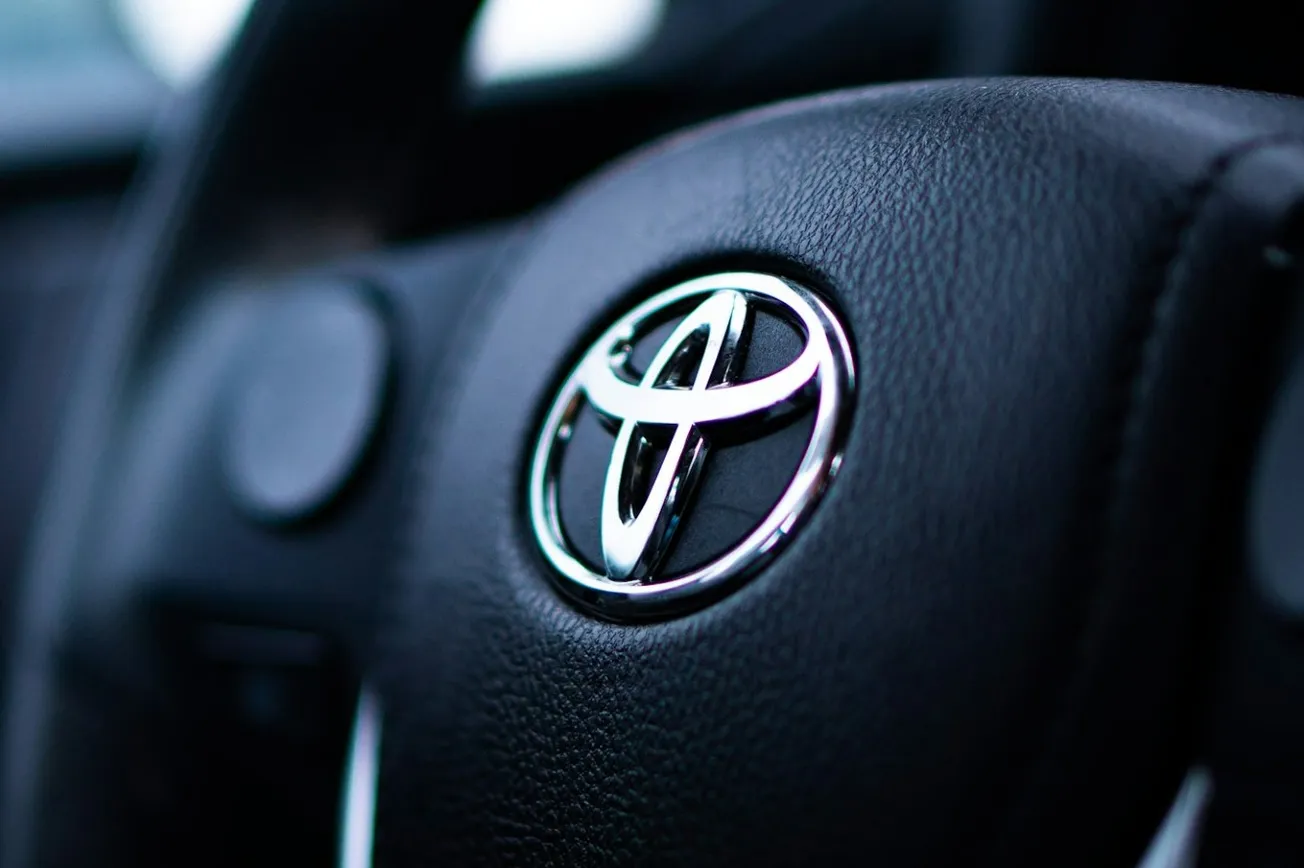- Public skeptical about Biden's EV focus to curb climate change
- Only 37% of Americans support the EPA’s EV regulations
- Demand for EVs is waning
- EVs remain more expensive than conventional cars; price parity is still years away
- Americans are concerned about EV policies driving up costs and contributing to inflation
Hotter summers, harsher winters, freak storms, and longer dry spells—as weather reports paint grim pictures, the debate rages on whether climate change is man-made, natural, controllable, or inevitable.
Even as the jury is out on these critical questions, the Biden administration has focused on one sector to curb climate change—the automobile industry. The President has been pushing electric vehicles and punishing fossil fuel-burning industries in a desperate attempt to appease the Left. While attention to emerging sectors and shifting technologies is welcome, many Americans feel that the lopsided emphasis on electric vehicles is shortsighted.
In a recently concluded nationwide Kudlow/TIPP poll of over 1400 Americans, the survey asked, “The Environmental Protection Agency (EPA) has proposed regulations requiring up to two-thirds of new passenger cars and trucks sold in the U.S. to be electric by 2032. Do you support or oppose this policy?”
Significantly, only a third, 34%, favor the EPA’s proposed regulation. Fully 54% oppose it. Party-wise, although 53% of Democrats support the initiative, 71% of Republicans oppose the move. Furthermore, the EPA’s plans find favor with only 29% of independents.
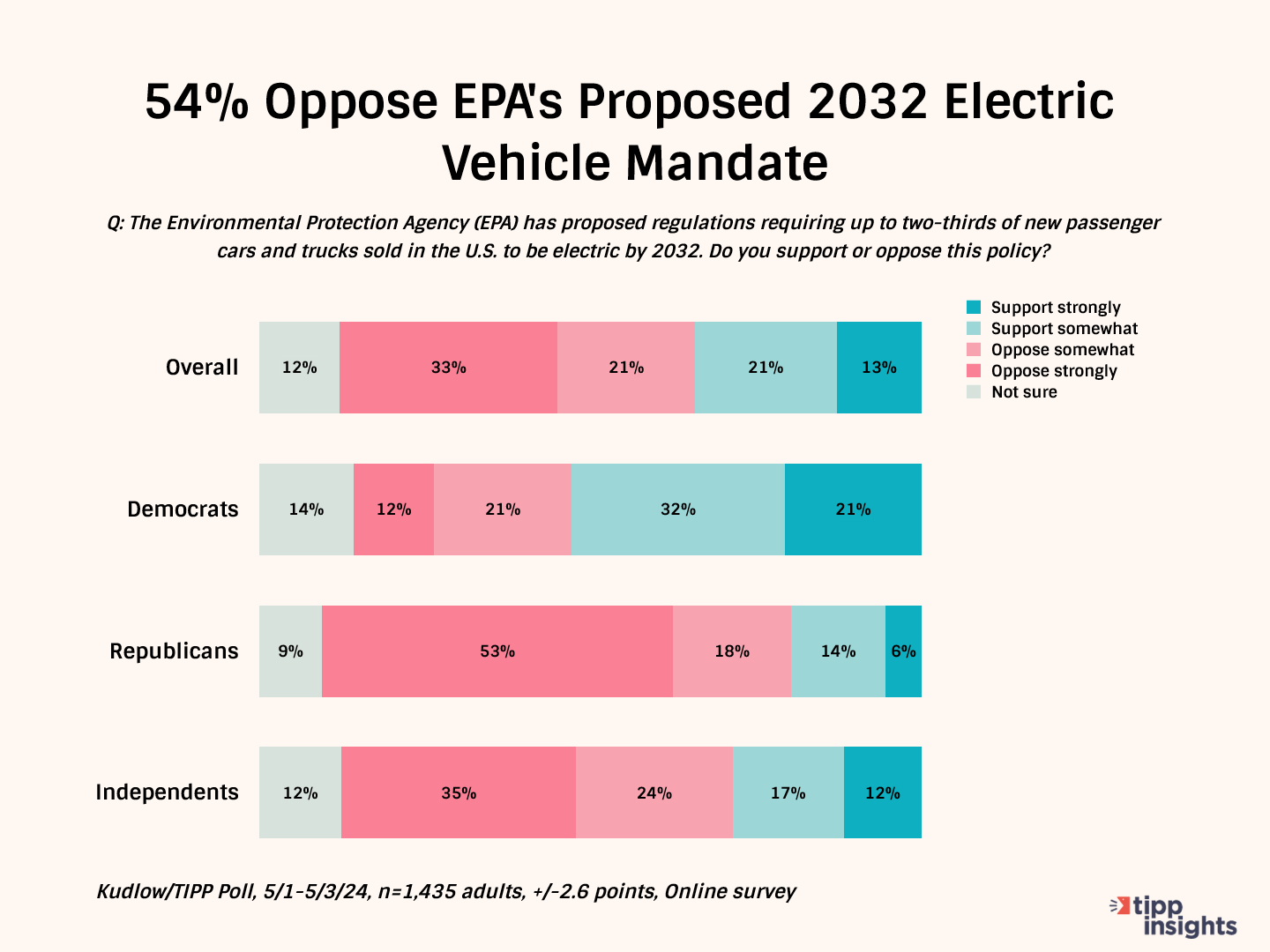
The recently released IEA report, Trends in Electric Cars, states:
In the United States, new electric car registrations totaled 1.4 million in 2023, increasing by more than 40% compared to 2022. While relative annual growth in 2023 was slower than in the preceding two years, demand for electric cars and absolute growth remained strong.
To the question, “To what extent do you agree or disagree with the following statement: Consumers should have the choice to drive gasoline-powered cars if they want to?” The survey respondents were overwhelmingly pro-choice. While 83% wanted the freedom to choose, 56% agreed strongly with the statement.
Interestingly, 77% of Democrats, 89% of Republicans, and 83% of independents said they wanted to be able to decide for themselves.
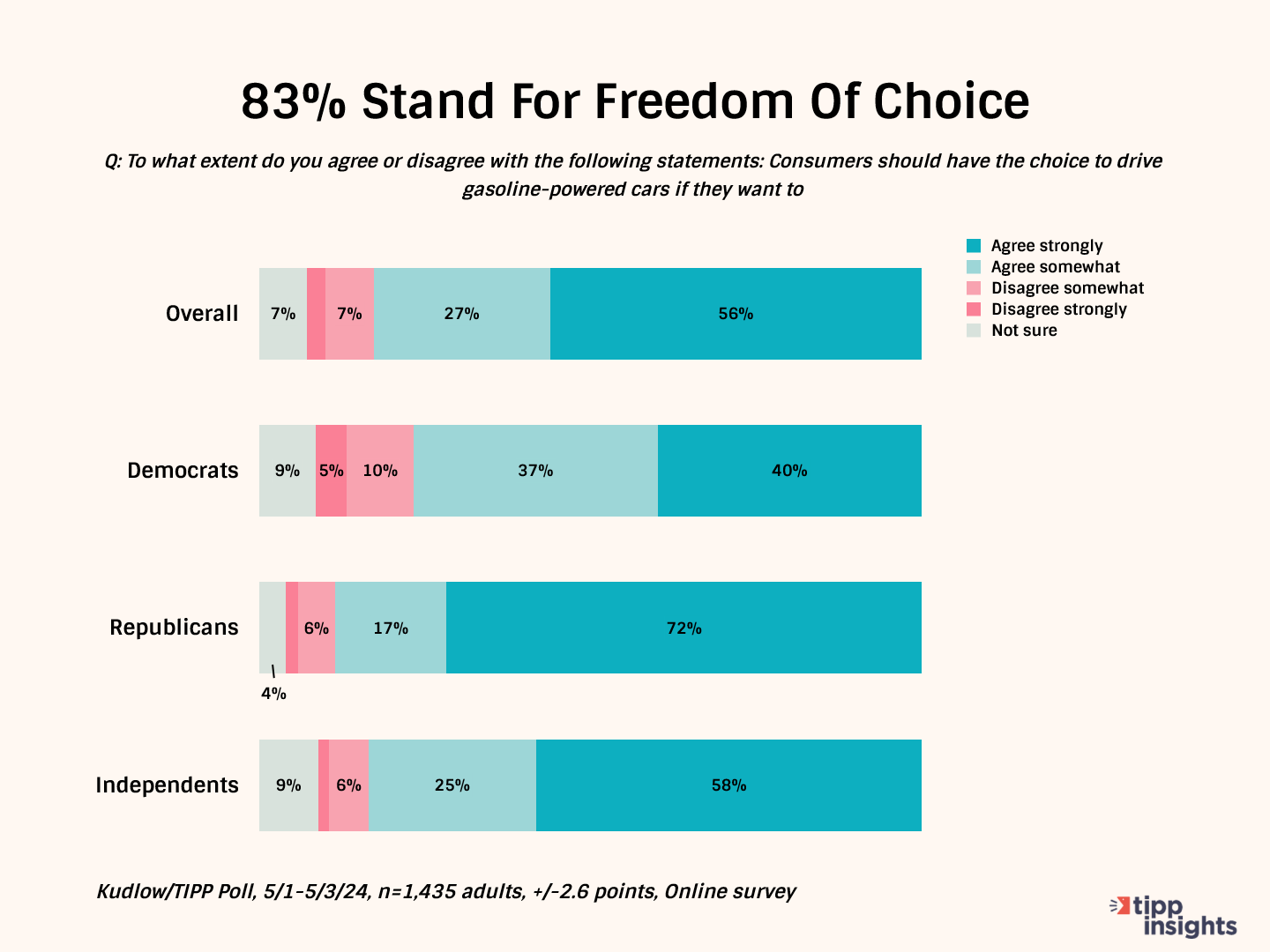
While demand for EVs has increased in recent years, customers' waning enthusiasm is palpable. The fall in demand has prompted many car manufacturers, like General Motors, to stop producing some of their popular EV models.
While more manufacturers are offering a wider range of electric vehicles, the fact remains that electric-powered cars are far more expensive than their fossil-fuel-burning counterparts. According to some industry estimates, just about 5% of electric cars sold in the country were cheaper than conventional ones. Auto pundits admit that average price parity for smaller cars is still far away, even though they expect electric-powered SUVs and gas-fueled SUVs to reach parity by 2030.
According to the IEA report:
Around 25 new all-electric car models are expected in 2024, but only 5 of them are expected below $50,000, and none under the $30,000 mark. Considering all the electric models expected to be available in 2024, about 75% are priced above $50,000 and fewer than 10 under $40,000, even after taking into account the $7,500 tax credit under the IRA for eligible cars as of February 2024. This means that despite the tax credit, few electric car models directly compete with small mass-market ICE models.
Furthermore, the new tax credit guidelines set out by the Biden administration have reduced the number of eligible electric vehicle models to less than 30 from about 45. With inflation eating into household budgets, it is little wonder that customers are sidelining higher-priced EVs.
The Kudlow/TIPP Poll asked, "To what extent do you agree or disagree with the following statement: Biden's EV push is blind to a lack of consumer demand?" A clear majority, 60%, felt President Biden's focus on EVs was incongruent with falling demand. 43% of Democrats agreed with the view, as did 77% of Republicans and 64% of independents.
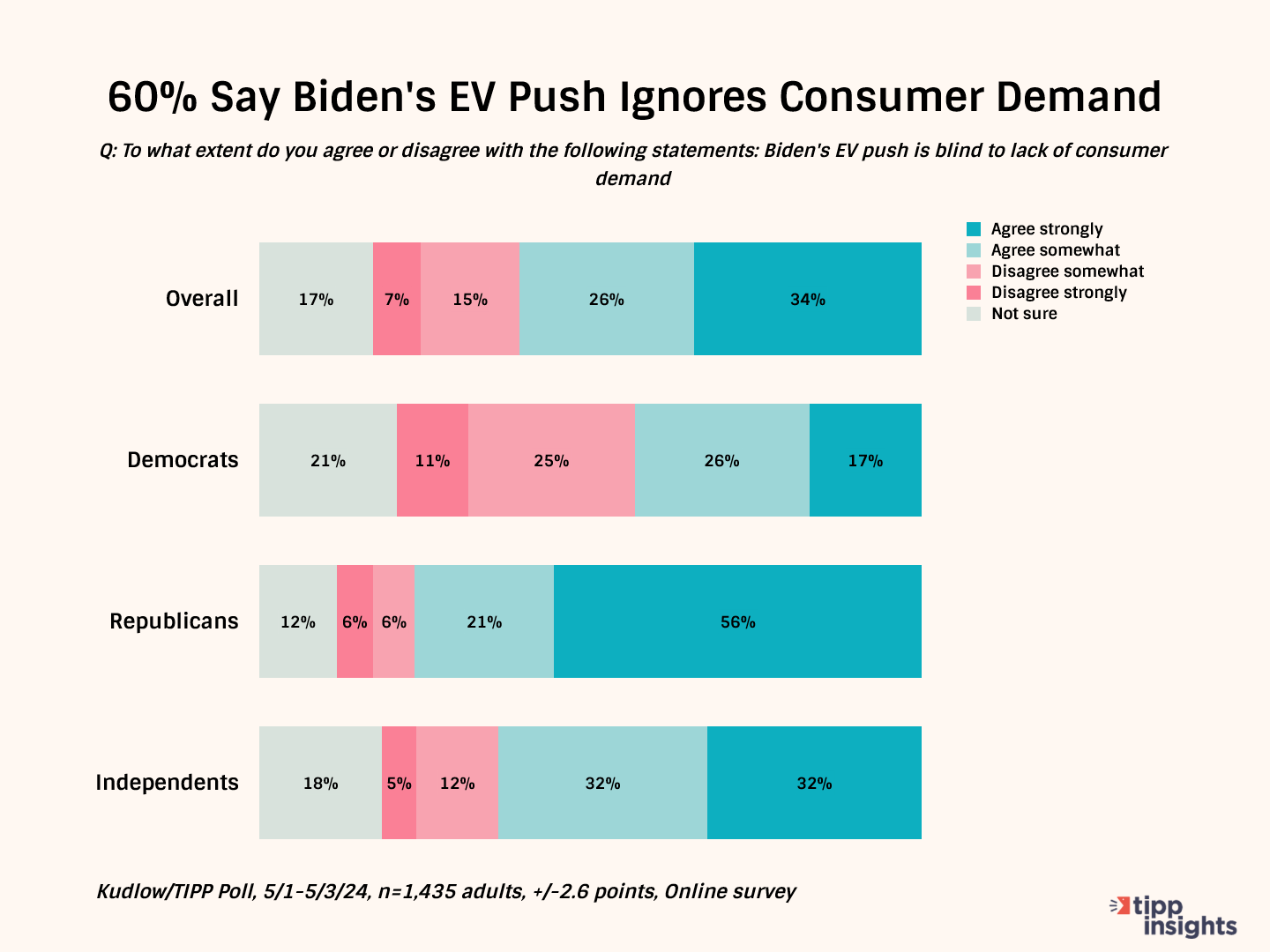
The haphazard measures to address climate change have caused people to mistrust the government's intentions. To the Kudlow/TIPP Poll question, "To what extent do you agree or disagree with the following statements: The government often uses climate as a reason to favor certain industries/lobbies/interest groups."
66% agreed that climate was often used as an excuse to further specific agendas. 51% of Democrats agreed with the statement, as did 80% of Republicans and 67% of independents.
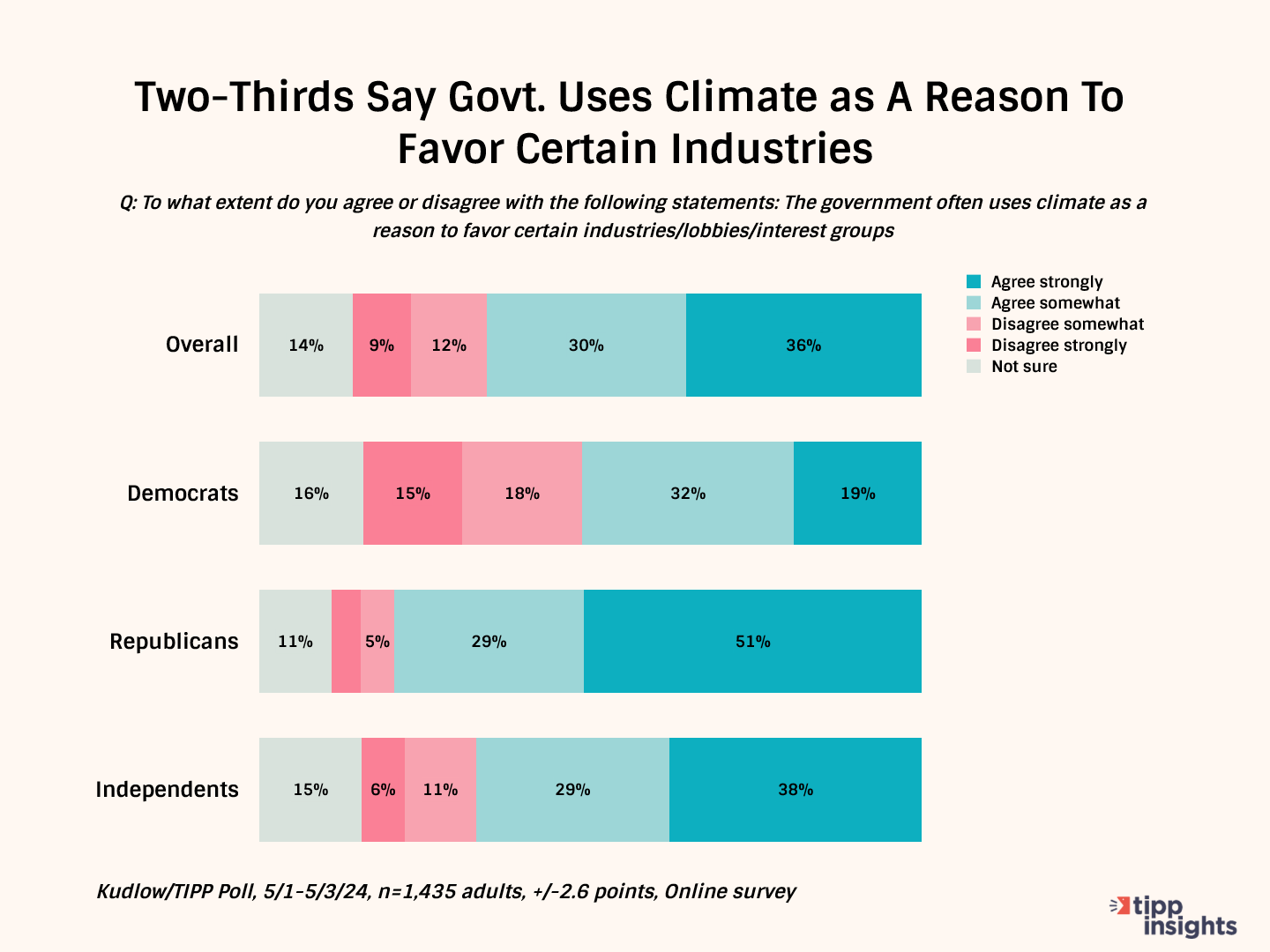
In the short term, myopic policies and a skewed focus will likely hurt various business domains. In the grip of inflation, Americans are already paying more for everything, from food to mortgages. The push to shift to EVs will likely affect prices across the board. Some of the major challenges facing the sector include supply chain issues, the availability of critical rare earth minerals, and manufacturing capacity. The automobile industry must invest in cleaner, greener production methods and management to meet climate mandates and realize the President’s electric vision.
The Kudlow/TIPP Poll asked, “The government imposes 'Climate mandates' aimed at reducing pollution. How concerned are you about the prospect of increased prices due to climate mandates affecting the manufacturing of electric vehicles, batteries, and chargers and their potential contribution to inflation?”
Almost three-fourths, or 74%, shared the concern that the Biden administration’s policies will drive up costs. 65% of Democrats, 81% of Republicans, and 77% of independents are bracing for the impact of the President’s policies on prices.
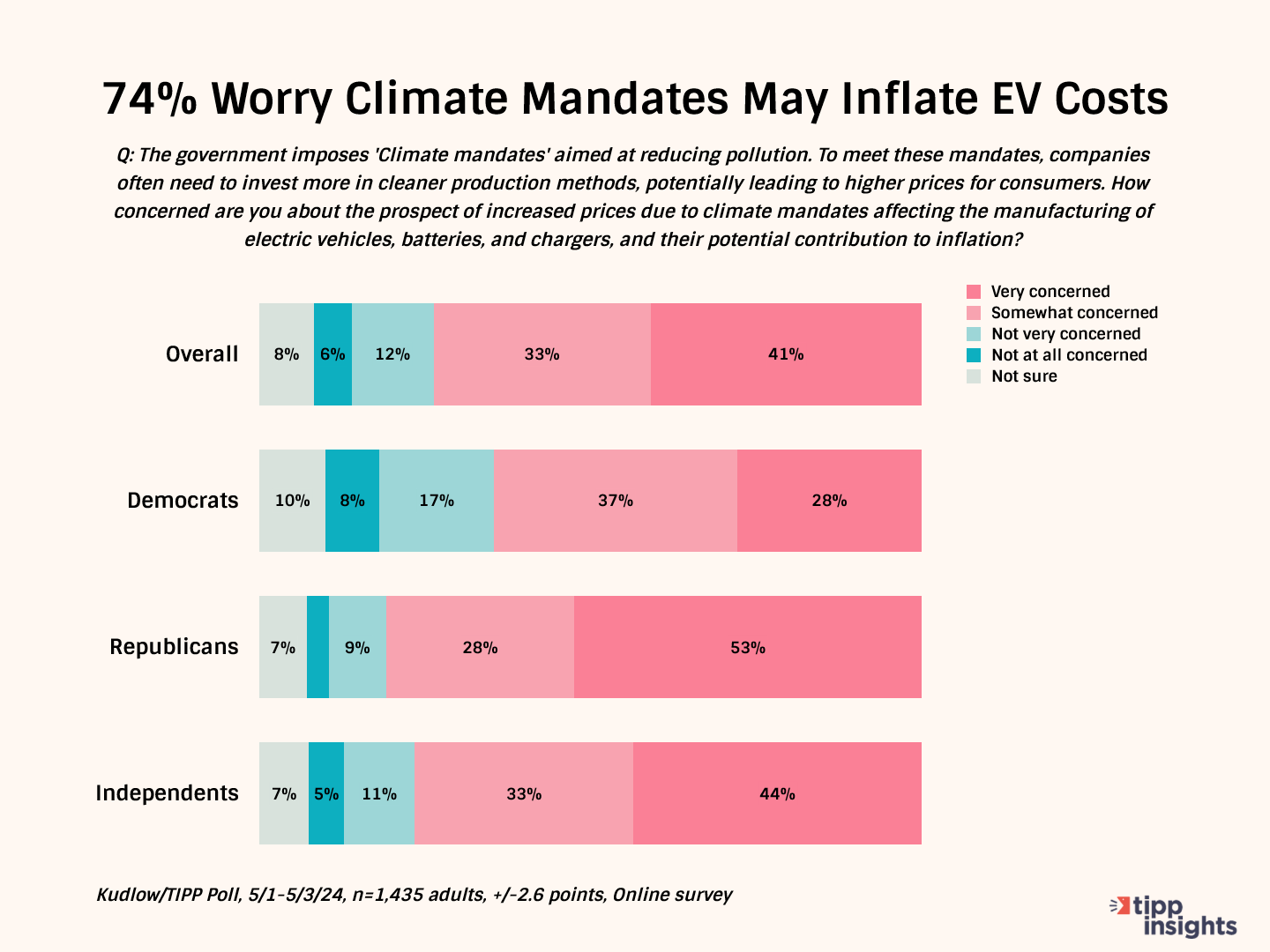
While those with a broader vision question exactly how green and clean electric vehicle manufacturing is, wonder how the industry will find the critical minerals to keep feeding production lines, and ask where the electricity to power all the EVs will come from, the President seems to have made up his mind—to electrify our future cars.


